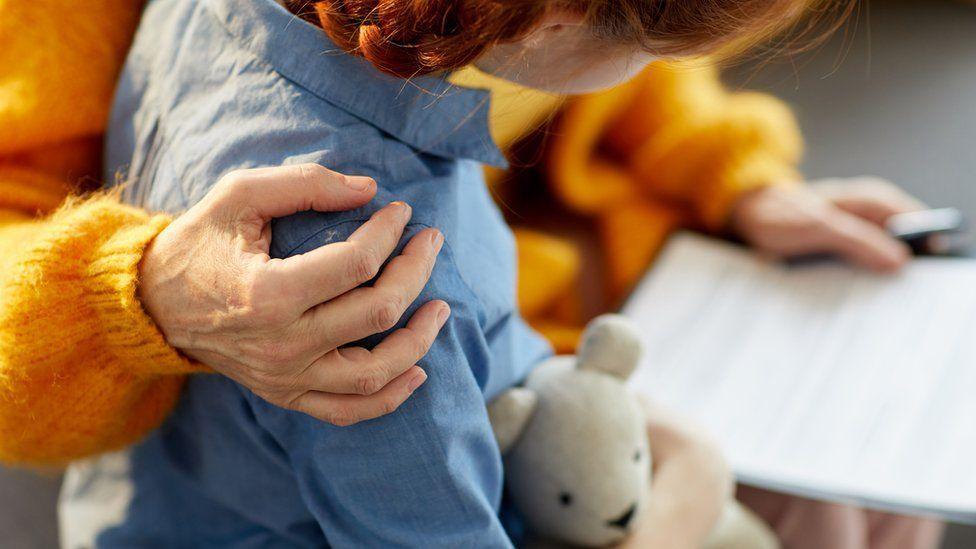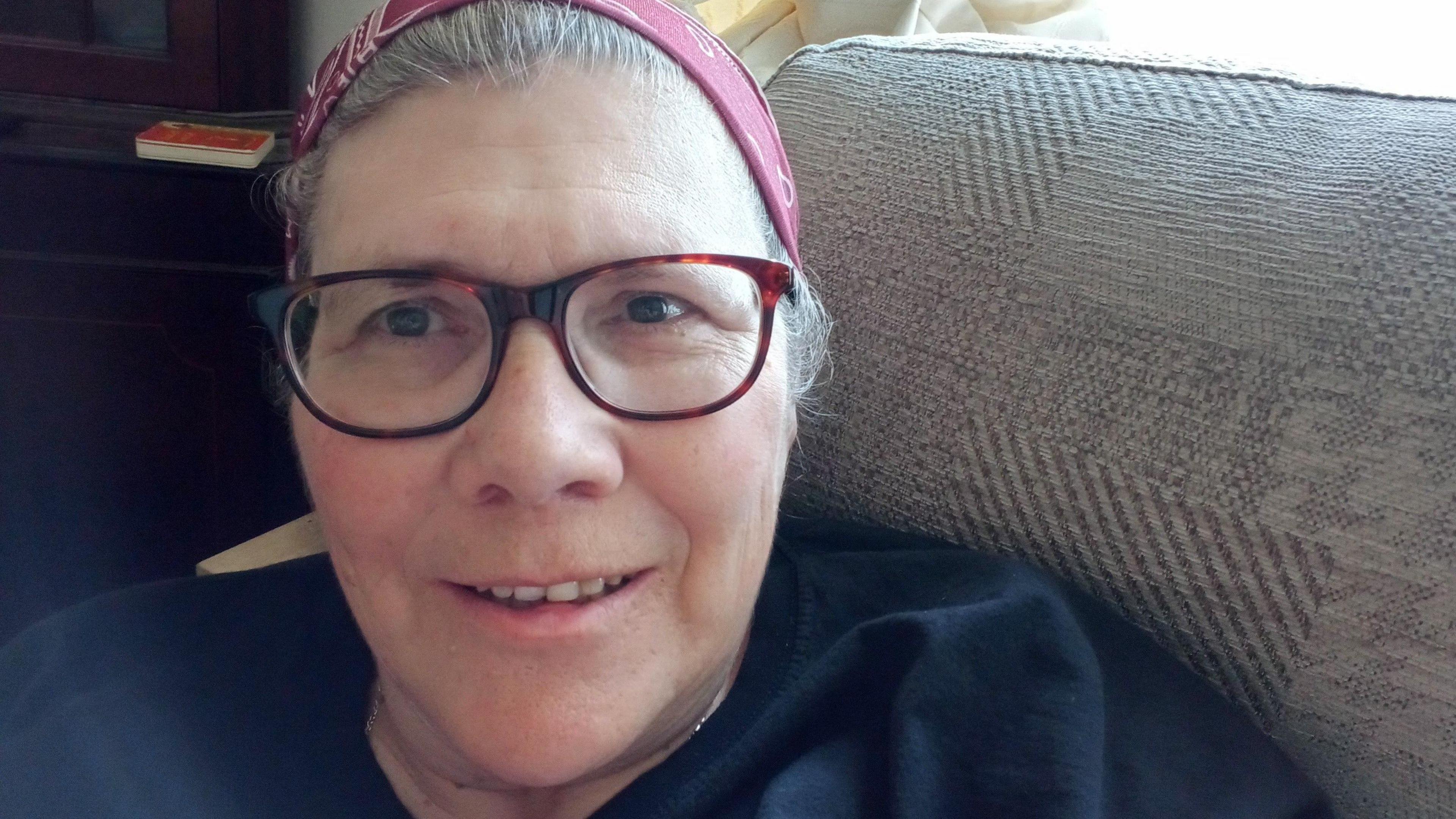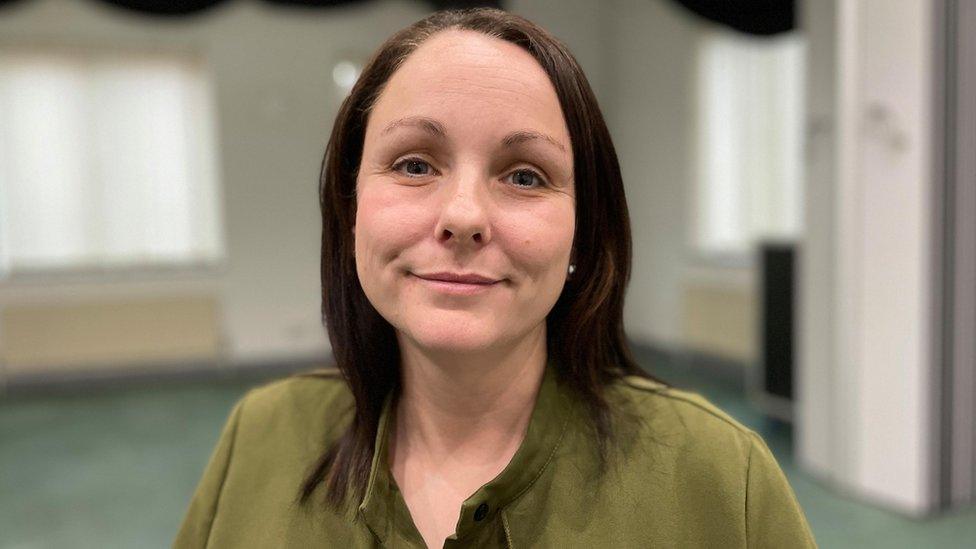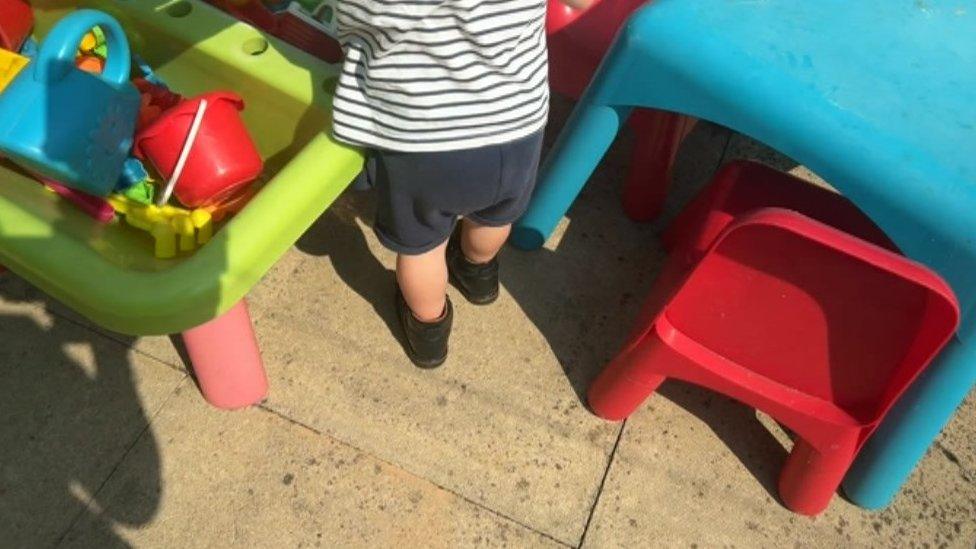Kinship carers left to rely on 'foodbank leftovers'

An Oxfordshire woman who took in her granddaughter said kinship carers should be paid allowances equal to those who foster
- Published
An Oxfordshire kinship carer who is raising her granddaughter is calling for the government to increase support for families like her own.
The charity Kinship estimates 141,000 children in England and Wales are in kinship care, which means they have been taken in by a family member or friend.
Rose - not her real name - said her income stopped "overnight" when she took on the care of her granddaughter, and she had to rely on "foodbank leftovers".
The government said it was "prioritising reform to support kinship families".
Rose had to give up her role as a foster carer when she took custody of her granddaughter.
Trained foster carers in Oxfordshire are currently paid between £352 and £465 per child, per week.
Rose now receives a means-tested allowance from Oxfordshire County Council of £87 a week for being a kinship carer.
She believes kinship carers should receive the same as those who foster.
"We were in a position where, when our church that we went to had finished with the foodbank stuff they used to get delivered for their cafe, when they'd finished with that food, we used to take the week-old foodbank food home and use it," she said.
"And we did that for months because we were really pushed, we just did not have income.
"It's difficult to recover from that, it takes years financially to recover."
'Period of grieving'
Rose said she had treatment for post-traumatic stress disorder because of the circumstances surrounding taking in her granddaughter, and wanted to highlight the stress that kinship carers experience.
"We love our granddaughter dearly, absolutely love her," she said.
"But we went through a period of grieving because we'd just come to a point where we thought we would begin to have an easier life and then we knew it had disappeared."
The county council said it followed a national legal framework around special guardianship allowances, which is the money Rose receives each week.
But the charity Kinship said there was a "postcode lottery" of support - and is backing Rose's calls for the same level of allowance as foster parents.
Rhiannon Clapperton, Co-Director of Policy and Communications, said: "Different kinship carers in different local authorities might receive different entitlements and different allowances, which is really problematic and really unfair.
"But across the board, we know that many kinship carers and their families are living in desperate poverty."
The government said support for kinship families was something it wanted to address.
Minister for children and families, Janet Daby, said: “For too long, kinship carers have not been recognised for the vital role that they play or the challenges they can often face – whether financial or emotional.
“We will drive change right across the children’s social care system, prioritising reform to support kinship families.”
Get in touch
Do you have a story BBC Oxfordshire should cover?
You can follow BBC Oxfordshire on Facebook, external, X (Twitter), external, or Instagram, external.
- Published24 June 2024

- Published15 December 2023

- Published15 June 2023
